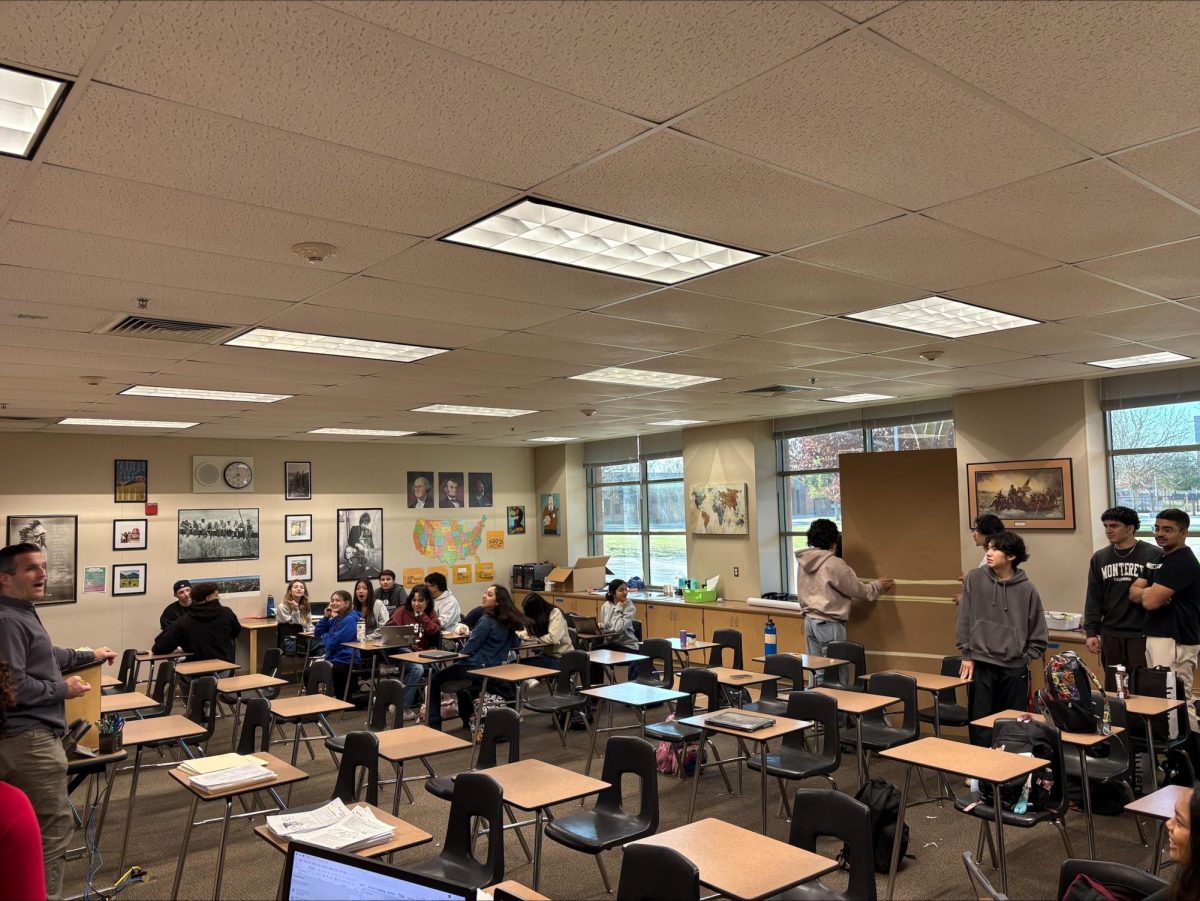It’s Not Just Students – the New Schedule Affects Teachers, Too
Enochs educators weigh in on the schedule change and its impacts on daily life

September 15, 2022
Enochs’ new schedule has taken a toll on not only students but teachers as well. Though the late start was intended to help students’ sleep schedule, it’s leaving everyone more tired.
Mr. Campbell, a Journalism and English teacher here at Enochs, struggles with the new schedule since he has to pick up his son after school. “For selfish reasons I prefer the old schedule. I think getting out at 3:30 this year has proved to be a challenge for me personally because I have a son that gets out of school at 3:15… so that makes it difficult. And then, for students with after-school programs and sports, it’s become difficult. So it’s just been a challenge adjusting to the new schedule.”
“I like the old one better. The new days do seem very long. On the plus side, on minimum days I don’t feel like I am rushing since they are similar to our old schedule,” says Ms. Brown, a Spanish teacher at Enochs.
Most teachers also have to worry about picking up their kids and getting to where they need to be after school.
“Yes, that’s the biggest bump. My kids get out at 2:30 and since I can’t get them in time, they have to go to after-school care until I can pick them up,” says Mr. Neslen, a Math teacher here at Enochs.
“My son on Wednesdays’ has dance class at 4:30. So when I get out here at 3:30 to go pick him up, get him home, get him dressed, give him a snack, give him a drink, and we’d be out the door no later than 4:05 or 4:10. My son also has soccer practice two days a week. So those sorts of things are not school related, but that sort of pressure builds up over time. It makes things difficult. It was a lot, it would have been a lot easier with an additional hour for that to happen,” Mr. Campbell says.
Luckily for Ms. Brown, she doesn’t have to worry about picking up her child after school, so she’s less stressed. “For me, I’m not that stressed. My son is older and I am used to working late. It feels like I personally am getting done earlier.”
On the bright side, with the additional eight minutes per class period, teachers have more time to teach and let their students start on their homework.
“I think that’s the double-edged sword of the extra ten minutes. We had forty-nine-minute periods last year, which were over in the blink of an eye. When we went to a hundred minutes with distance learning, that was a lot, but at the same time, you get used to it after you do it for an entire year. Then you adjust back down to forty-nine minutes. That’s a shock and then now add ten minutes to that. So it’s the breakup of the continuity. I think that makes it difficult,” says Mr. Campbell.
Ms. Brown uses the extra eight minutes of class to let her students start on their homework. “I don’t find it difficult to fill the extra eight minutes of class time. I give them time to start their homework or practice vocabulary as opposed to assigning more work. Students don’t have a lot of extra time after school for homework now that we end a lot later.”
“When I’m teaching I go right to the bell, so nothing changes,” Mr. Neslen states.
On minimum days, students get out an hour earlier, while teachers have collaborative meetings that last an hour, so they leave at the same time as they would on a normal day.
Ms. Brown believes, “Since we start later, we end later now. They aren’t any longer, but it feels very late to get out for a minimum day at 2:17.”
At the end of the day, students and teachers come home drained and exhausted. Since we have less time to do our other duties, it becomes strenuous and stressful.
Mr. Neslen thinks that with time, the new schedule won’t be as draining as it is now. “Yes, I’m tired at the end of the day but not very much. I think it’s just the start of the school year and you have to get back into the routine.”
“I do feel like the longer day is draining. Eight minutes more per period times five classes is forty more instructional minutes. It is almost a full “normal” fifty minutes class period for us. I am definitely more tired at the end of the day,” Ms. Brown discloses.
Most days, Mr. Campbell comes home tired after a long day of teaching and taking his kids to their after-school activities. “The weird thing about teaching is there’s not a whole lot of physicality to it. But there’s a lot of mental strain. You’re using your brain at this high level all day long. And so even before the day was longer, I was exhausted at the end of the day. You can magnify that now like the idea I could get home and just sit down, pass out. I can’t do that because I’ve got a million other things to do. Maybe this is the silver lining. I’ve never slept better than I have in the last month.”



